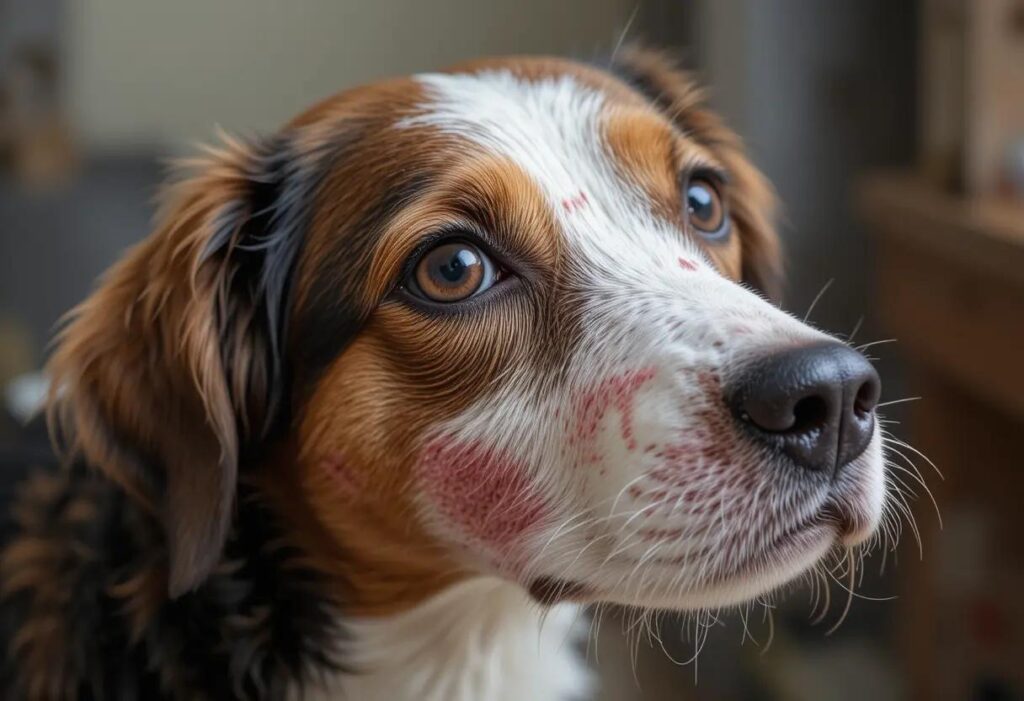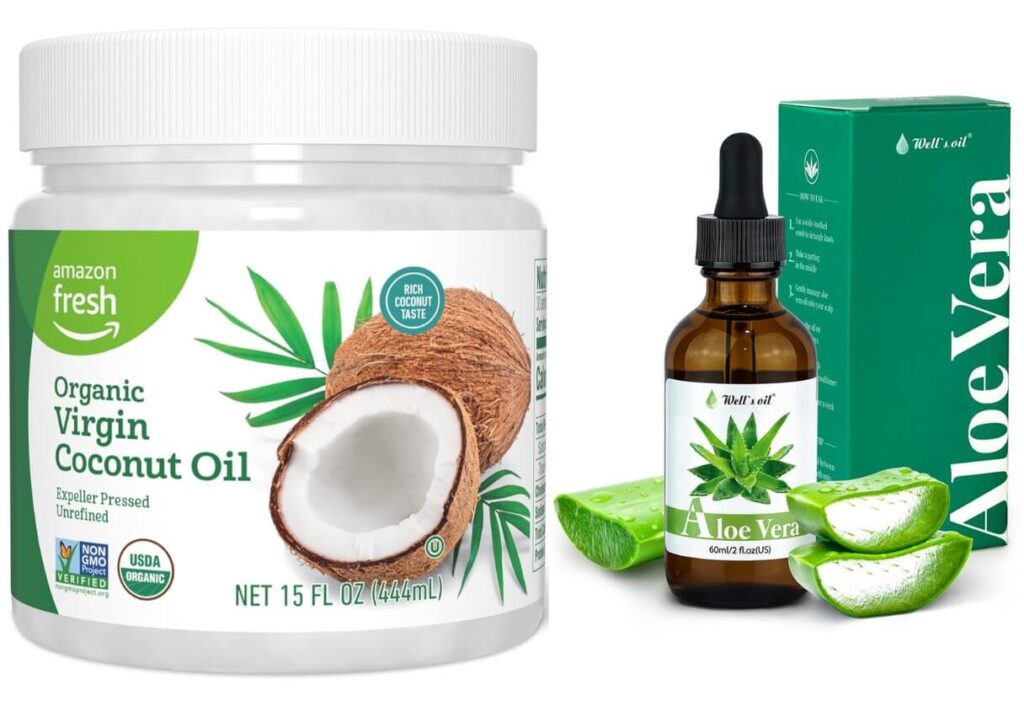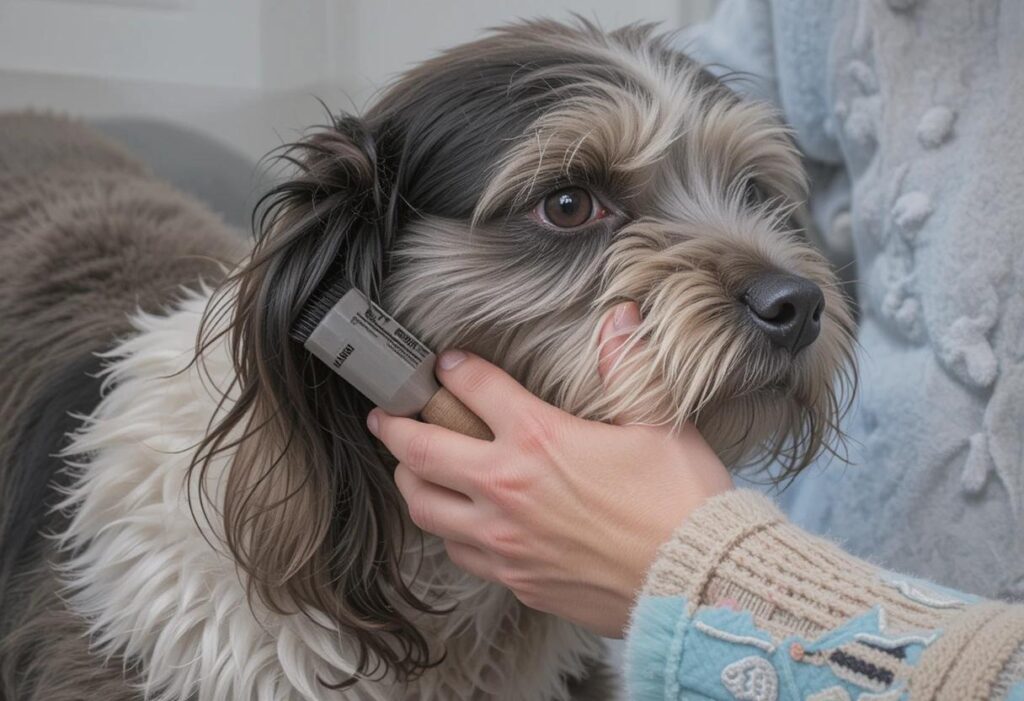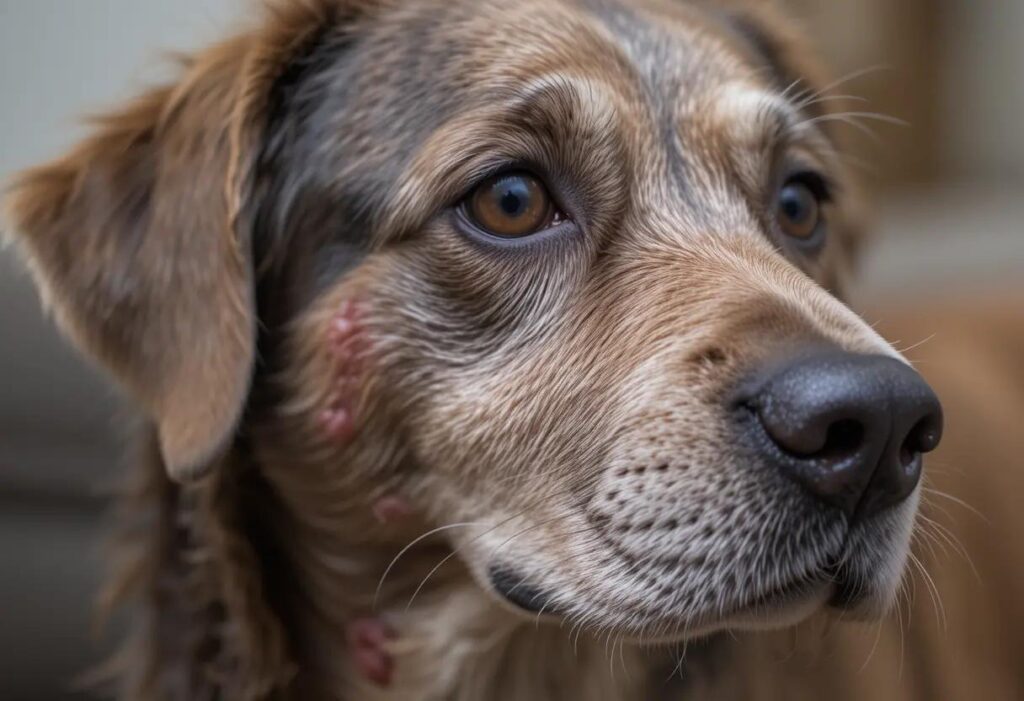Pet skin health is an often-overlooked aspect of overall pet care. While we focus on keeping our furry companions happy, healthy, and well-fed, their skin plays a significant role in ensuring their comfort and well-being. A pet’s skin is the first line of defense against harmful bacteria and environmental irritants, and a shiny, smooth coat often reflects good overall health. However, when skin issues arise—whether from allergies, infections, dryness, or irritation—it can affect not only their appearance but their mood and quality of life.
Understanding pet skin health and how to naturally manage and improve it can go a long way in promoting your pet’s longevity and happiness. In this detailed guide, we will explore common skin problems, natural remedies, prevention strategies, and when to consult a vet for professional care.
Table of Contents

Why Pet Skin Health is Important
Skin health is one of the most visible signs of your pet’s overall health. Moreover, a shiny, smooth coat and healthy skin indicate that your pet is well-nourished and properly cared for. On the other hand, dry, itchy, or irritated skin can be a sign of allergies, infections, or other health issues. By addressing your pet’s skin health naturally, you can help prevent and treat common issues like dryness, hot spots, or dandruff.
Common Pet Skin Problems
Pet skin problems can arise from a variety of causes, including environmental allergens, nutritional imbalances, or even stress. Below are some of the most common skin issues that your pet might face:
- Dry Skin: Just like humans, pets can experience dry skin. This condition may be caused by environmental factors like cold weather, or even frequent bathing, which strips the skin of natural oils.
- Itchy Skin: Itching is a common sign of an allergy or sensitivity. Allergies can come from environmental allergens like pollen, mold, or dust, or from food sensitivities and flea infestations.
- Hot Spots: These are moist, inflamed, and infected areas on the skin that are usually caused by excessive licking, scratching, or biting. Hot spots are often seen in pets suffering from allergies or anxiety.
- Fungal or Bacterial Infections: Infections can manifest as red, irritated patches, bumps, or sores. These are often secondary issues that develop after your pet has scratched or licked the skin too much.
- Dandruff: Flaky skin is often a sign of dryness but can also indicate more serious health problems, such as hormonal imbalances or nutritional deficiencies.
While these issues are common, they can often be managed with natural treatments that soothe, moisturize, and promote healing.
Natural Remedies for Pet Skin Health
Several natural remedies can help treat and prevent skin problems. These remedies are gentle and safe, making them perfect for improving your pet’s skin health without harsh chemicals.
1. Aloe Vera
Aloe vera is widely known for its soothing properties, making it an excellent natural remedy for itchy or irritated skin. Aloe contains enzymes that can help heal the skin and reduce inflammation, offering much-needed relief for your pet. It’s also a natural moisturizer and can restore hydration to dry skin.
How to Use: Simply apply fresh aloe vera gel directly to the affected area. You can also use aloe vera-based pet shampoo during regular baths to maintain skin hydration and relieve discomfort.
Benefits:
- Soothes skin irritation
- Reduces inflammation and redness
- Moisturizes dry patches and promotes healing
2. Coconut Oil
Coconut oil is another excellent remedy for a variety of pet skin problems. It has antifungal, antibacterial, and moisturizing properties that can address dry skin, itching, hot spots, and even fungal infections. The medium-chain fatty acids in coconut oil also penetrate deeply into the skin, helping to heal and moisturize it from within.
How to Use: Rub a small amount of coconut oil onto your pet’s affected skin areas. You can also add a small amount to your pet’s food to support skin health from the inside out.
Benefits:
- Treats dry, flaky skin
- Reduces itching and inflammation
- Helps heal hot spots and wounds
- Supports skin health from within

3. Oatmeal Baths
Oatmeal is a classic natural remedy for itchy skin, and it works wonders on pets suffering from dryness or irritation. It contains compounds called avenanthramides, which have anti-inflammatory properties that help soothe itchy skin. Oatmeal also provides moisture and can restore the skin’s natural barrier.
How to Use: Grind oatmeal into a fine powder and mix it with warm water to create an oatmeal bath. Let your pet soak in the bath for about 10-15 minutes to relieve itching and irritation.
Benefits:
- Calms itchy and irritated skin
- Restores moisture to dry skin
- Reduces inflammation and soothes the skin
4. Apple Cider Vinegar
Apple cider vinegar (ACV) is a powerhouse when it comes to balancing the skin’s pH levels, fighting bacteria, and promoting healing. It can also act as a natural antiseptic to help prevent infections in areas that are scratched or licked excessively. ACV can help alleviate dandruff, hot spots, and other skin irritations.
How to Use: Mix equal parts of apple cider vinegar and water in a spray bottle. Lightly spritz your pet’s coat and massage it in. Be sure to avoid spraying near their eyes or any open wounds.
Benefits:
- Balances pH levels in the skin
- Acts as an antimicrobial rinse
- Helps reduce hot spots, dandruff, and itching
5. Omega-3 Fatty Acids
Omega-3 fatty acids, commonly found in fish oils, are essential for maintaining healthy skin and a shiny coat. These fatty acids reduce inflammation and dryness, and they help improve skin hydration and elasticity. Adding omega-3s to your pet’s diet can provide long-term benefits for their skin health.
How to Use: You can add fish oil or flaxseed oil to your pet’s food. Start with a small dosage, and gradually increase it according to your vet’s recommendations.
Benefits:
- Reduces inflammation and skin irritation
- Helps maintain skin moisture and elasticity
- Promotes a healthy, shiny coat
6. Regular Brushing
Regular grooming and brushing are essential for keeping your pet’s skin healthy. Brushing removes dead skin cells, mats, and loose fur, which can all contribute to skin irritation. It also stimulates blood flow to the skin and helps distribute natural oils, which keep the skin hydrated.
How to Use: Choose a brush that’s suitable for your pet’s fur type (e.g., a slicker brush for long-haired pets or a bristle brush for short-haired ones). Brush gently, especially if your pet has sensitive skin.
Benefits:
- Removes dead skin cells and loose hair
- Prevents matting and tangling
- Stimulates blood flow and distributes natural oils

7. Herbal Remedies
Herbs like calendula, chamomile, and lavender have soothing, anti-inflammatory properties that can be very beneficial for skin health. These herbs can be used to create natural skin rinses or incorporated into your pet’s baths to help reduce skin irritation and promote healing.
How to Use: You can steep these herbs to create a tea and use it as a rinse or add it to your pet’s bathwater.
Benefits:
- Soothes irritated skin
- Reduces inflammation and redness
- Promotes healing of minor wounds and rashes
Prevention Tips for Maintaining Pet Skin Health
- Hydrate Properly: Make sure your pet always has access to fresh water. Proper hydration is crucial for maintaining healthy skin and coat.
- Choose the Right Diet: Feeding your pet a balanced diet that is rich in vitamins, minerals, and healthy fats will support their skin health. Look for foods that contain omega-3 and omega-6 fatty acids.
- Flea Control: Fleas can cause itching and irritation. Use flea preventatives regularly to avoid infestations.
- Limit Bathing: Bathing your pet too frequently can strip their skin of natural oils, causing dryness. Bath your pet only when necessary and use a pet-safe, moisturizing shampoo.
- Check for Allergies: If your pet has persistent skin problems, allergies could be the cause. Consult your vet to identify any food or environmental allergens.
When to See a Veterinarian
While natural remedies can do wonders for your pet’s skin, it’s important to consult a veterinarian if your pet’s skin problems persist or worsen. Some skin conditions may require medical treatment, such as prescription medications or specialized shampoos.

Signs that you should see a vet include:
- Severe itching or redness
- Open sores or wounds
- Foul odor from the skin
- Hair loss
- Unusual lumps or bumps
Final Thoughts
Pet skin health is integral to your furry friend’s overall well-being. By understanding the common skin problems and implementing natural remedies such as aloe vera, coconut oil, and oatmeal baths, you can help your pet maintain healthy, hydrated skin. Prevention is key, so ensure your pet stays hydrated, follows a nutritious diet, and gets regular grooming. If skin issues persist, don’t hesitate to consult with a vet to address any underlying health concerns.
By paying attention to your pet’s skin health and incorporating these natural remedies into their routine, you’re setting them up for a long, happy, and comfortable life.
Ready to Become the Best Dog Parent Ever?
Is Your Dog Ready to Live Their Best Life?
Ready to Become the Best Cat Parent Ever?
FAQs
1. Why is pet skin health important?
Pet skin health is crucial because the skin is your pet’s largest organ and serves as a barrier against bacteria, allergens, and harmful environmental factors. Healthy skin and a shiny coat are indicators of your pet’s overall well-being and comfort.
2. What are the most common skin problems in pets?
Common skin problems in pets include dry skin, itchy skin, hot spots, fungal or bacterial infections, dandruff, and hair loss. These issues can be caused by allergies, infections, poor nutrition, or environmental factors.
3. How can I tell if my pet has skin allergies?
Signs of skin allergies in pets include excessive scratching, licking or biting of the skin, redness, rashes, swelling, hair loss, or inflamed ears. If these symptoms persist, it’s important to consult your vet.
4. Can I treat my pet’s skin issues with natural remedies?
Yes, many natural remedies can help treat and manage common pet skin problems. Aloe vera, coconut oil, oatmeal baths, and apple cider vinegar are some of the most effective options for soothing irritated skin and promoting healing.
5. How often should I bathe my pet?
Bathing frequency depends on your pet’s coat type and lifestyle. Generally, pets should only be bathed every 4-6 weeks unless they get dirty or smelly more frequently. Over-bathing can strip the skin of its natural oils, causing dryness.
6. What can I do to prevent skin issues in my pet?
To prevent skin problems, ensure your pet is well-hydrated, feed them a balanced diet rich in omega-3 fatty acids, use flea preventatives, and maintain regular grooming. Also, keep your home clean to reduce environmental allergens.
7. Are there specific foods that support pet skin health?
Yes, foods rich in omega-3 and omega-6 fatty acids, like fish oils, flaxseed, and certain vitamins, can help improve skin health. Look for high-quality pet food that includes these nutrients, or consider adding supplements to your pet’s diet.
8. Can pets develop skin problems due to stress?
Yes, stress can contribute to skin issues in pets. Anxiety may lead to excessive licking or scratching, which can worsen existing skin conditions, such as hot spots. Providing a calm and secure environment is essential for your pet’s well-being.
9. When should I take my pet to the vet for skin issues?
If your pet experiences severe or persistent itching, hair loss, open sores, wounds, or unusual lumps, it’s time to see a vet. Your vet can determine the cause of the problem and recommend a treatment plan, which may include medications or specialized skin care products.
10. Can I use human skincare products on my pet’s skin?
No, human skincare products are not suitable for pets. They can be too harsh, contain ingredients that may irritate your pet’s skin, or disrupt their natural pH balance. Always use pet-specific products that are designed for their skin type and needs.
Pet Grooming Tips: A Comprehensive Guide for Healthy and Happy Pets

